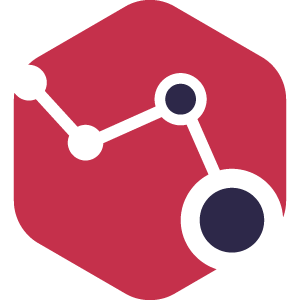Nvidia
Prior Listings
- Senior Data Analysis Engineer
- Senior Data Engineering Developer
- Senior Data Engineer, Data Science Platform
- Data Scientist, Autonomous Vehicle Infrastructure Analytics
- Senior Solutions Architect, AI and ML
- Data Scientist, Autonomous Vehicle Infrastructure Analytics
- Python Software Engineer, GPU - Accelerated LLM Data Applications
- Senior Solutions Architect, Machine Learning
- Governance and Infrastructure Data Engineering Manager
- Governance and Infrastructure Data Engineer
- Senior Data Scientist - DGX Cloud
- Principal Data Scientist - Cloud Gaming and AI
Python Software Engineer, GPU - Accelerated LLM Data Applications
Python Software Engineer, GPU - Accelerated LLM Data Applications
NVIDIA is seeking a Python Software Engineer to further our efforts to GPU-accelerate data engineering for Large Language Model (LLM) tools and libraries. This role is pivotal in accelerating pre-processing pipelines for high quality multi-modal dataset curation. The day to day focus is on developing efficient, scalable systems for deduplicating, filtering, and classifying training corpora for foundation model LLMs, as well as ingesting and prepping datasets for use in Retrieval Augmented Generation (RAG) pipelines. Fundamental to these efforts are iterative testing and improvement in system cost, speed, & accuracy through micro-optimization, prompt engineering, fine tuning, and applying new research. The ideal candidate is happiest releasing early and often! They court user feedback with an ear open to the spirit of related feature requests. They are comfortable objectively evaluating the latest AI models and frameworks with an eye on acceleration potential. Would you like to run your training & test experiments on our supercomputers on thousands of GPU? Come work with us!
What you'll be doing:
Develop and optimize Python-based data processing frameworks, ensuring efficient handling of large datasets on GPU-accelerated environments, vital for LLM training.
Contribute to the design and implementation of RAPIDS and other GPU-accelerated libraries, focusing on seamless integration and performance enhancement in the context of LLM training data preparation and RAG pipelines.
Lead development and iterative optimization of components for RAG pipelines, ensuring they demonstrate GPU acceleration & the best performing models for improved TCO.
Collaborate with teams of LLM & ML researchers in the development of full-stack, GPU-accelerated data preparation pipelines for multimodal models Implement benchmarking, profiling, and optimization of innovative algorithms in Python in various system architectures, specifically targeting LLM applications.
Work closely with diverse teams to understand requirements, build & evaluate POCs, and develop roadmaps for production level tools and library features within the growing LLM ecosystem.
What we need to see:
Advanced degree in Computer Science, Computer Engineering, or a related field (or equivalent experience).
5+ years of Python library development experience, including CI systems (GitHub Actions), integration testing, benchmarking, & profiling
Proficiency with LLMs and RAG pipelines: prompt engineering , LangChain, llama-index
Deep understanding of the PyData & ML/DL ecosystems, including RAPIDS, Pandas, numpy, scikit-learn, XGBoost, Numba, PyTorch
Familiarity with distributed programming frameworks like Dask, Apache Spark, or Ray
Visible contributions to open-source projects on GitHub
Ways to stand out from the crowd:
Active engagement (published papers, conference talks, blogs) in the data science community
Experience with production level data pipelines, especially SQL based
Experience with software packaging technologies: pip, conda, Docker images
Familiarity with Docker-Compose, Kubernetes, and Cloud deployment frameworks
Knowledge of parallel programming approaches, especially in CUDA C++
You will also be eligible for equity and benefits. NVIDIA accepts applications on an ongoing basis.


